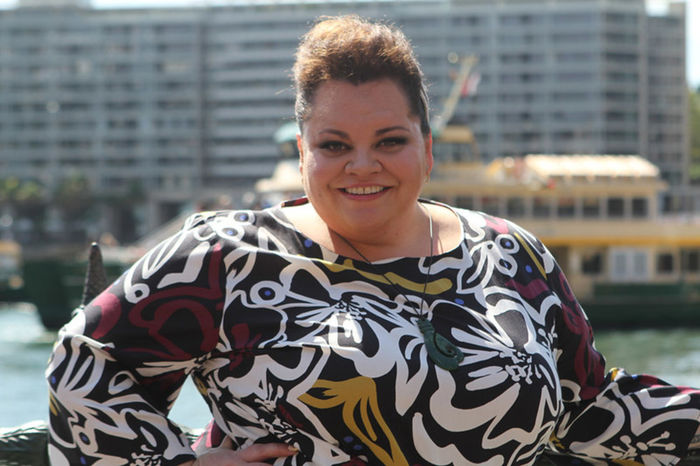Paralympic Bronze medalist Jan Helmich on his Paris experience and lasting legacy on the Blues system
Lauren Guye discusses finding your passion, teamwork, and Cambridge rowing firsts with Bronze medalist Jan Helmich

“I just really enjoyed it. I liked the exercise element, and being outside,” Jan Helmich tells me, reminiscing about his initial impression of rowing. He had never rowed before starting at the University, but quickly started to rise through the ranks, training throughout his undergraduate and masters degrees, as well as the doctoral degree he is currently pursuing.
For Helmich, finding something you’re passionate about is one of the best things about Cambridge. “I don’t know, like not a single place in the world, where in the same institution, you can play all of the instruments, go to choir, go shooting, play polo or any sport you can think of, learn about pretty much anything.”
“That’s the first hurdle, right? You need to find someone that’s willing to give you the shot”
Having reached out to the German Paralympic team in 2018, Helmich very quickly gained international recognition, competing at the 2018 world championships that summer. Balancing sport and academics has “always been a bit of a sacrifice,” he says. “You have to get up super early to do your training before your studies, and then there’s another session in the afternoon, and you have to be in bed at a reasonable time to actually manage, multiple days in a row, to get up early as well.” Luckily, Helmich’s PhD supervisor is incredibly supportive. “I have the ability to work remotely if I need to, and essentially take the work at my own pace, more or less.”
Helmich made history in the Cambridge Boat Club, becoming the first athlete to receive a Blue in para-rowing. “With the blessing, with the support of the Lightweight Boat Club at the time, I put in a request for an extraordinary Blue.” Without a precedent to work with, the university invited Helmich to discuss what the requirements should be. “Being involved in the process of thinking, ‘okay, what could be useful criteria to ensure both the individual component of putting in the work [and] being competitive, but also, a rowing, like on water element,’ it’s been really quite cool,” he tells me. “Now there’s actually criteria written down for future athletes.”
“We managed to show the world that we’re the third best crew at the most important event that we can be a part of”
“That’s the first hurdle, right? You need to find someone that’s willing to give you the shot, despite maybe being concerned about what the implications of it might be like.” Helmich, who has clubfoot, “execute[s] the movements a little bit different[ly]” but doesn’t need “a special boat [or] a special training environment as such.” He tells me that this made it “very easy for the team to just try it and see how I can get along … Everyone’s been really kind of supportive, and also, in a good way, interested in how it affects me, how I do things differently.”
Competing in the PR3 Mixed Double Sculls, Helmich tells me how he’s been able to adapt to his rowing partner, Hermine Krumbein, in a similar way. “I can’t move my ankles … but she’s visually impaired, so she doesn’t know how far along in the race we are.” During their races, Helmich takes on a “double role,” steering the boat while rowing. “I have to be her guide. I have to let her know ‘we’re halfway,’ ‘we have this much to go,’ ‘we need to like, really start pushing now.’” It’s a conscious decision, to put himself “in her shoes,” and it’s this combination of empathy and communication, alongside “pushing as hard as you can for seven minutes” that he attributes their Paris success to.
Recalling the last 500 metres of the final race, he says “I think it was the biggest amount of spectators I’ve ever seen at any rowing [event]. It must have been around 15,000 people. And this is enormous for a rowing race. Usually it’s maybe 2000, mostly family and friends.” Both Helmich and Krumbein are luckily “fairly good” with stressful situations. “I think that’s also equally something that Cambridge teaches you quite well, like just being exposed to so much stress that you just have to learn how to deal with it … I have learned to handle such intense situations where 15 to 20,000 people are watching me as I try to row to my best ability.”
After everything was over, it took “a minute or two” for the joy to sink in. “We managed to show the world that we’re the third best crew at the most important event that we can be a part of … I’d never quite had this feeling before.”
 Comment / Plastic pubs: the problem with Cambridge alehouses 5 January 2026
Comment / Plastic pubs: the problem with Cambridge alehouses 5 January 2026 News / Cambridge businesses concerned infrastructure delays will hurt growth5 January 2026
News / Cambridge businesses concerned infrastructure delays will hurt growth5 January 2026 News / New movement ‘Cambridge is Chopped’ launched to fight against hate crime7 January 2026
News / New movement ‘Cambridge is Chopped’ launched to fight against hate crime7 January 2026 News / AstraZeneca sues for £32 million over faulty construction at Cambridge Campus31 December 2025
News / AstraZeneca sues for £32 million over faulty construction at Cambridge Campus31 December 2025 Interviews / You don’t need to peak at Cambridge, says Robin Harding31 December 2025
Interviews / You don’t need to peak at Cambridge, says Robin Harding31 December 2025










